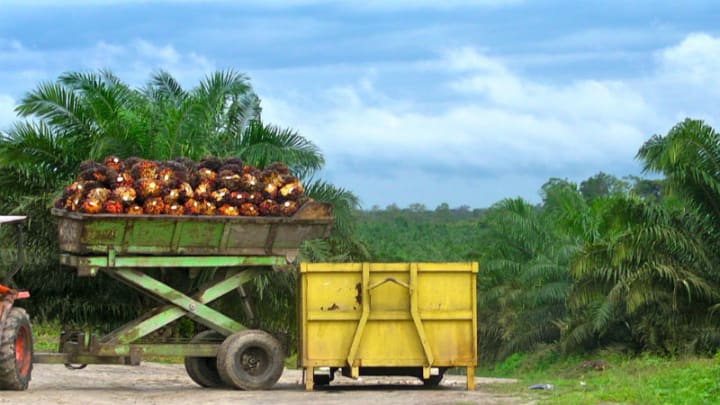
Last month, with relatively little fanfare, members of the world’s largest certification scheme for palm oil, the Roundtable on Sustainable Palm Oil, voted to strengthen its sustainability standard.
Palm oil — despite being the most widely used vegetable oil on the planet — and its certifier, the Roundtable on Sustainable Palm Oil, are both still relatively obscure. But in the wake of the landmark report from the Intergovernmental Panel on Climate Change, and in the weeks leading up to this year’s 24th Conference of the Parties to the United Nations Framework Convention on Climate Change, the actions by smaller players, such as the roundtable, take on greater significance.
More on COP24:
► Q&A: IRENA chief on investing in renewable energy's 'quiet revolution'
► Bangkok climate talk leaves 'heavy lifting' to Poland COP24
Written by the world’s leading climate scientists, the Intergovernmental Panel on Climate Change report gave staggering findings: climate change is happening now, and we only have roughly 12 years left to avert the worst effects of it. There is a huge scale of action required to achieve the 1.5 degree Celsius limit set by the Paris Agreement, reached at the COP21 in 2015.
“Natural disasters” such as fires, floods, droughts, heat waves, food shortages, mass extinctions, and sea level rise will be serious with 1.5 degrees Celsius of warming — but much worse with a 2 degrees Celsius warming or above. To achieve the amount of emissions reduction required, there must be a rapid decline in the use of fossil fuels, but keeping the world’s forests standing is equally important.
The palm oil industry, a leading driver of tropical rainforest deforestation and peatland conversion, is a significant contributor to global climate emissions. Left standing, forests and peatlands take carbon out of the atmosphere, removing nearly a third of our current carbon dioxide emissions. One of the three key themes at the upcoming COP24 will be how to achieve climate stability through carbon dioxide absorption by forests and land. But when forests are cleared and peatlands are drained and burned to make way for palm oil plantations, what was an efficient carbon sink becomes a massive source of greater emissions.
The Roundtable on Sustainable Palm Oil’s decision to strengthen its sustainability standard is an important first step. The vote comes as many have been questioning the roundtable’s relevance in the marketplace, as dozens of palm oil traders, financiers, and major consumer goods brands have independently elected to go beyond the roundtable standard — which has been criticized as weak because it allowed for deforestation and has a poor track record of sanctioning members that violate the standard.
The new certification is now in alignment with market expectations that palm oil companies will comply with “No Deforestation, No Peat, No Exploitation” production practices, but a strong standard is meaningless without enforcement.
The roundtable’s recent decision to not suspend Indofood, Indonesia’s largest food company, is evidence of the failures of the roundtable system. Indofood, and its associated companies with and without the roundtable membership, lack a sufficient roundtable policy, and have been caught both clearing carbon-rich peatlands in violation of Indonesian law while also systematically and illegally violating workers’ rights for over two years. A certification scheme that continues to allow bad actors who are driving climate change and labor exploitation to be certified and sold under a “sustainable” label cannot last long.
As the Intergovernmental Panel on Climate Change report made all too clear, we’re running out of time to act on climate change. And as the regulator of an industry with an enormous impact on tropical rainforests, the roundtable must step up to the plate with it's newly revised standard and strongly enforce it without delay.
Each fraction of a degree of global warming has life or death consequences, and given the importance that forest and peatlands play in regulating the global climate, it is no longer hyperbole to say that the fate of our world may rest in the decisions of relatively unknown actors such as the Roundtable on Sustainable Palm Oil.
Sign up here to get the latest information and inside stories from COP24 in your inbox.
